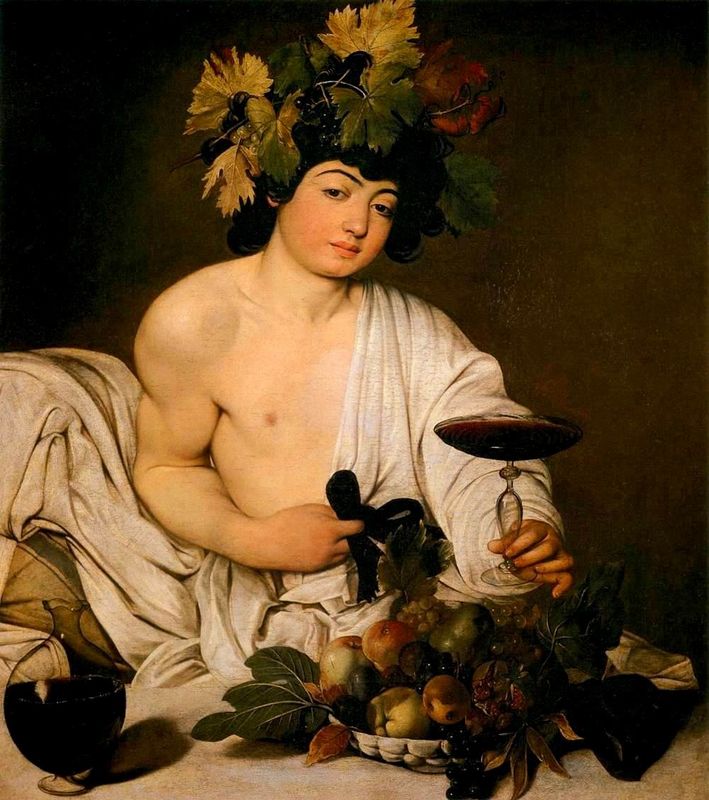In order to place grapes on a timeline, it is necessary to go back several thousand years. During the autumn, in temperate zones, there were plenty of ripe grapes, a nutritious, healthy and widely appreciated fruit. However, prehistoric man had to face long winters, freezing-cold periods and ineffective, rudimentary or non-existent production techniques, which made the conservation of food for the leaner times very difficult. The solution to this problem was fermentation, that is, the transformation of a raw material. For example, that was the origin of cheese, made from milk; or bread, from cereal; or wine itself, created from grapes. Wine "elevated the soul" of Greeks, Romans and Americans.
Wine was making headway and was here to stay. Humans realised that wine was not only a comforting drink, it also “elevates the soul” thanks to its “spiritual” component (spirits, to be exact).
It was also the perfect complement for many foods. Mediterranean countries soon made wine part of their lifestyle, thanks to the Phoenicians and the Greeks, who promoted its rapid expansion.
It was the Romans, however, who were most responsible for spreading and studying wine culture, for economic and strategic reasons . For them it was a pillar in the structure of their economic, political and organisational system. When the Roman Empire crumbled away, it was the Church who continued the task. For the Church, wine was a very important element of its dogma, its liturgy and its sacraments – in those days, the Church was an hegemonic institution, in terms of both religion and politics.
During the Middle Ages, Spain became the wine producing country par excellence, and this was extended to the other countries of the Spanish Empire. On their journeys to America, they took European grapevines to the other side of the ocean; above all so that the conquerors could avoid the risk of drinking water. Soon the presence of grapevines spread from Oregon to Chile and from Argentina to Florida, making the most of those lands and climates.
After the decline of the Spanish Empire, France became absolutely immersed in wine culture, and is the main reference in the area to this day.
 We can say that wine has been a defining feature in many cultures and has helped to strengthen links between them. Literature, music and other arts are full of references to wine. Greek culture is laden with stories related to wine. In Greek mythology, the divine hero Ganymede enjoyed wine and in The Odyssey, Ulysses uses it to get the Cyclops to relax so that he can escape. The most widely-known literary quote referring to wine is a reference to Noah in the book of Genesis in the Bible which states: “Noah, the tiller of the soil, was the first to plant a vineyard. He drank of the wine and became drunk”.
We can say that wine has been a defining feature in many cultures and has helped to strengthen links between them. Literature, music and other arts are full of references to wine. Greek culture is laden with stories related to wine. In Greek mythology, the divine hero Ganymede enjoyed wine and in The Odyssey, Ulysses uses it to get the Cyclops to relax so that he can escape. The most widely-known literary quote referring to wine is a reference to Noah in the book of Genesis in the Bible which states: “Noah, the tiller of the soil, was the first to plant a vineyard. He drank of the wine and became drunk”.
And last but not least, the famous canvas by the Italian painter Caravaggio depicting the god Bacchus, who for the Romans embodied celebration, revelry and immoderation. The Italian artist immortalised him as a young man wearing a lush crown of grapes and holding a glass of red wine in his left hand. Today, the presence of wine is as strong as it is in that 16th century picture.